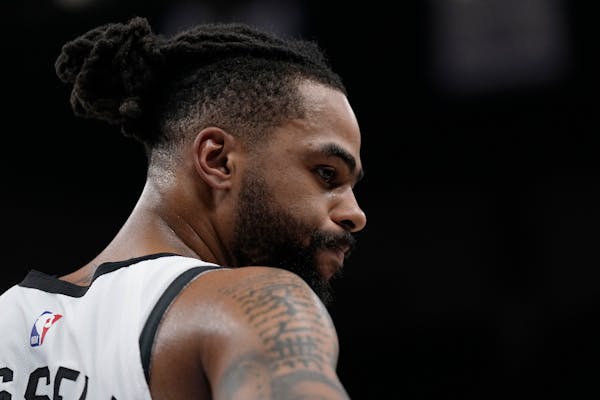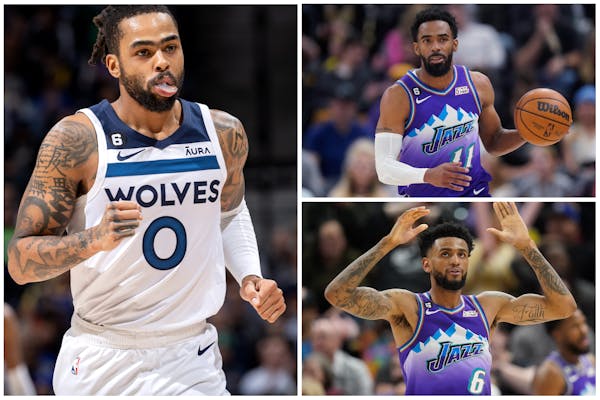SALT LAKE CITY – The Timberwolves' trade deadline move came Wednesday when they made a three-team deal that sent D'Angelo Russell out of Minnesota and will bring in former Utah guard Mike Conley.
But before the trade was official, and before a lopsided victory over the Jazz, Wolves coach Chris Finch was asked how the team has adjusted to playing with center Rudy Gobert on the defensive end.
Finch's answer might not have been about the Russell trade specifically, but it offered some insight into what the Wolves' organizational philosophy might be in the Gobert era.
"One of the things we say all the time when we deal with these Rudy-centric questions was what happened here in Utah was an evolution of a roster best crafted around their best players, and our roster doesn't resemble those types of players," Finch said. "We have different types of players. We have to do different types of things."
Finch went on to explain how the Wolves, who are at Memphis on Friday night, have had to toggle back and forth between defensive coverages when Gobert is on or off the floor. The Wolves play a drop coverage with Gobert on the floor and tend to play more of their high-wall, scramble defense when he's not.
But, whether intentional or not, Finch also described what the Wolves did in acquiring Conley — they made a deal to get a better player they think is a better fit with Gobert. The Wolves had three seasons' worth of evidence to examine from Conley's time with the Jazz. They sent out Russell, who was sometimes frustrated about acclimating to Gobert. After a loss to Charlotte on Nov. 25, Russell was asked by the Star Tribune about acclimating to Gobert's style of play. His response was short: "He catch the ball, he'll score."
If anyone knows how to get the ball to Gobert, it's Conley.
"I love Mike," Gobert told reporters in Utah on Wednesday. "I just love the way he plays the game — the way he makes people around him better, his professionalism, the way he plays to win and his selflessness, and I love him as a person too, so obviously I'm happy."
On a larger scale, the Russell-Conley trade represents where the Wolves are as an organization. They have committed to making Gobert and Karl-Anthony Towns fit together in Minnesota, and with Gobert being 30, the Wolves don't have time to punt on a season and hope next year is better. They have to win now because the trade opened a four-year window while Gobert is under contract in Minnesota, and they have to win before Gobert starts seeing a precipitous decline in performance.
President Tim Connelly said the team had discussions about an extension with Russell, along with other free agents-to-be in center Naz Reid and Jaylen Nowell, but nothing came to pass.
Rather than risk losing Russell in free agency for nothing, the Wolves made the move not just to find a better fit with Gobert, but to preserve Russell's salary slot so they can operate above the salary cap and below the luxury tax. The Wolves waived guard Bryn Forbes to make room for guard Nickeil Alexander-Walker, who is coming to Minnesota in the deal as well.
The flip side of the trade is the Wolves still don't know what their roster is going to look like, or what they will need around Gobert, Towns and Anthony Edwards moving forward. Finch also reiterated that point.
"We haven't had a chance to evaluate what our roster looks like," Finch said. "We're missing KAT. That's obviously a huge piece of the puzzle. It's hard to evaluate what this team looks like moving forward right now."

Minnetonka rolls past Anoka and into the Class 6A Prep Bowl

Wild's victory over Montreal comes at a cost: Injuries to Eriksson Ek and Zuccarello

Pepi goal lifts US over Jamaica 1-0 in CONCACAF Nations League quarterfinal first leg


